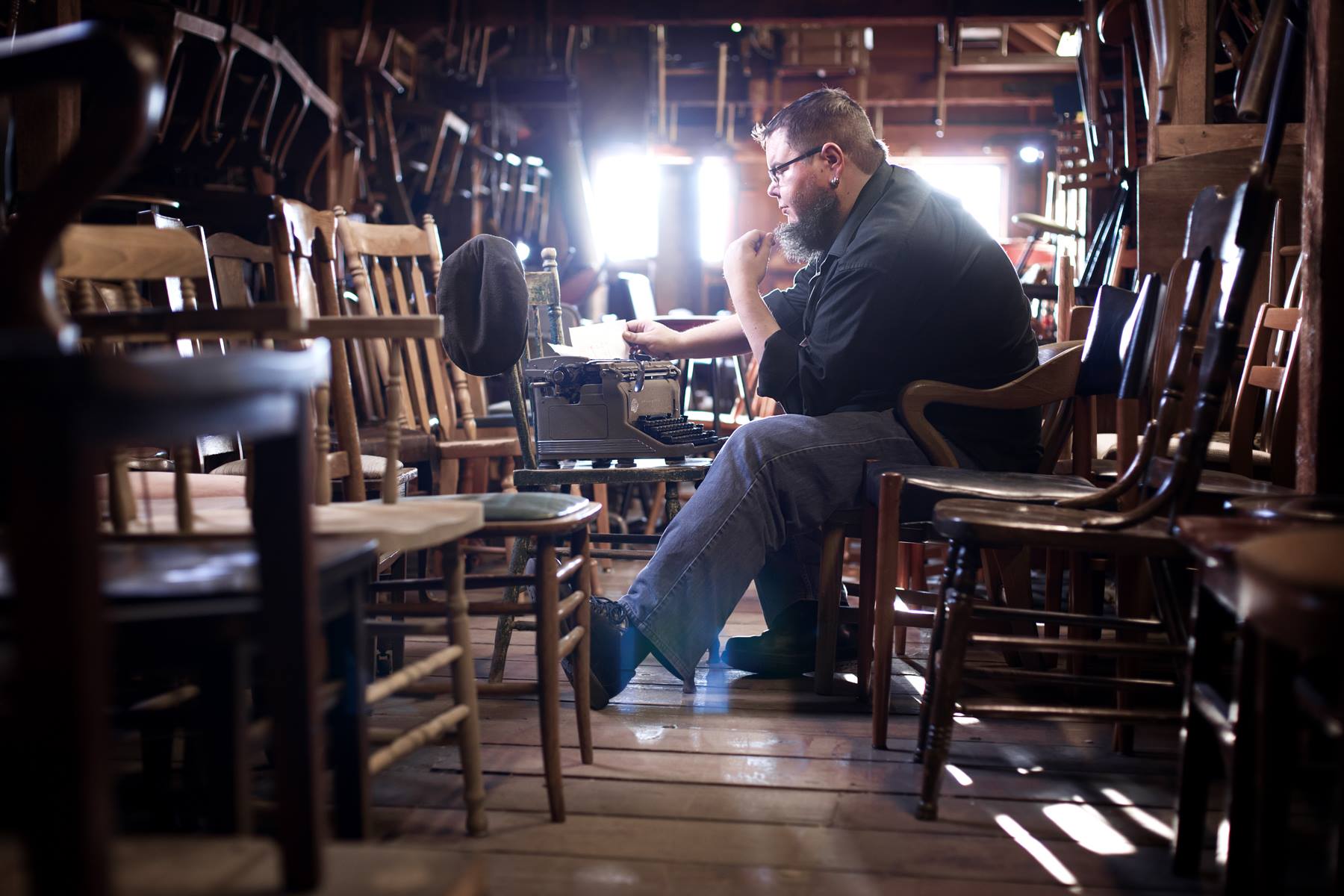Shane Koyczan: a master marionette of emotion and metaphor
Melissa Ridge attends Shane Koyczan’s headline gig at the Pepper Canister Church in Dublin and witnesses a night of soul-purging spoken word.
There is something decadent about the spoken word artform. That’s not to say spoken word represents a decaying medium in literature, more so the collapse of walls and the demise of boundaries and restrictions, the unleashing of inhibitions and the release of something free new; everything demonised by organised religion, really. It’s ironic yet entirely fitting that the venue for the Shane Koyczan event be in the Pepper Canister Church in Dublin.
MC for the evening Kale Ryan opens the show with a note that while in a place of worship, it would be a night of worshipping words. The overarching theme on the night is hard-hitting grief and loss of family members, but throughout each performance amongst the congregation of attendees, there was a love and understanding for the artists.
Shane Koyczan is an internationally recognized spoken word artist from Canada, famous for his anti-bullying video “To This Day”, which has garnered 23 million views on YouTube. Supporting performances on the night were from Cabra poet and facilitator Emmet O’ Brien and Alana Daly Mulligan, an “artivist” and filmmaker from Waterford.
Spoken word is a fluid genre that combines elements of poetry and storytelling wrapped up in sincere and thought-provoking topics spun from real life experiences, and there isn’t a more natural storyteller than Koyczan, a master at spinning hurt and heartache into poetic gold. Daly Mulligan commented: “Any young poet can only marvel at Shane’s honesty with his audience,” Daly Mulligan comments, “how he has managed to touch so many people all over the world and wish that they can make people feel even a little bit from their art.”
“It’s a celebration of being human, the hurt and the love and all that it is to be living. The message is clear, all hearts break because we are human.”
“He just becomes one with the piece when he’s performing, so natural on stage”, O’Brien says, standing on the steps outside the church before his performance. It’s an exciting prelude for the event itself; O’Brien performs poems “North Side” and “Smell of Old Spice”, the former being a reflective call and response piece on his hometown and the people in it.
It is a poem of longing for a more accepting environment for people like him, people who don’t necessarily fit the mould of what it means to be from the North Side but still embody all that it is. This is to say nothing of the inherent irony of a call-and-response piece being performed from an altar. There is a message of connectivity in O’Brien’s set that continues throughout the night.
Daly-Mulligan introduces herself with “Define”, a poem about eighteen-year-old heartbreak and anguish and the redefinition of femininity. “Choosing the poems I did for the set had a lot to do with the impact I wanted to have on people. I love to educate the audience and be vulnerable with them,” she says.
As if to illustrate her point, love poem “Constellatus” appears mid-set. She chose this poem for two reasons. “Firstly, my other pieces are quite heavy and I didn’t want to completely traumatise the audience, and secondly, finite time is something I’ve been thinking a lot about lately-both in love and life,” she says. “The poem talks about how fragile human life is and, as much as we want to, we can’t change the bigger things, only ourselves.”
Her set is funny and charismatic and charming, with strong undertones of grief and an outcry for acceptance embodied by “Hands”. At this point, the lighting shifts in the Church, the fading sunlight creates a display of shadow puppetry on the pillars by the altar.
“Hands” is a poem about sexuality and identity and wanting to be accepted for the love we have to give, and she gently ties a thread between her poem and the assault on two young women on a bus in London. This isn’t a religious experience, it’s something more. It’s a celebration of being human, the hurt and the love and all that it is to be living. The message is clear, all hearts break because we are human.
“There isn’t a more natural storyteller than Koyczan, a master at spinning hurt and heartache into poetic gold”
Koyczan steps onto the altar with a smile and begins the first of the five stages of grief. His opening is funny and warm; he cracks jokes about his visit to a hardware store, where he compares the colour of his nipples to the paint charts. He is a dusty rose, he says.
His performance is free-flowing, free-wheeling spoken word storytelling. He tells of the death of his beloved grandmother, lamenting that “you don't shush a broken heart”. While his performance explores the concept of death and dying, desperately seeking how to cope with shadows cast upon pillars we lean on to survive, it is draped in comedy. Smiling through tears, he blows his nose after each piece telling stories of his grandmother and his childhood.
Koyczan is a master marionette of emotion and metaphor and bestows to this congregation that to love is to lose, that “risk is your endorsement of hope”. The importance of living means living life to the fullest and to do that means opening yourself up to hurt.
The insight into the type of person his grandmother was hits home for many, for anyone who has lost someone. This is the power of the spoken word. Through heartache and loss we celebrate life as a community of people. We tell stories of moments and in this small church in Dublin we feel it together, heartbreak, loss, love, and acceptance.
Written by Melissa Ridge



